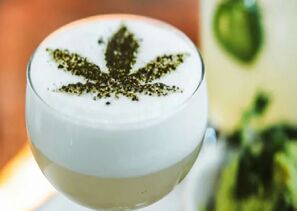大麻二酚产品真的会让你放松吗?
|
Besides oils and tinctures, you can now consume CBD in the form of infused gummies, gourmet desserts, and even the seltzer offered at a certain boutique gynecology office. The marketing is definitely ahead of the science, so here's what to know about the grains of truth behind the claims. The research on CBD and anxiety Quieting anxiety is one of the best understood effects of CBD-but that's not saying much.
Studies of rats and mice have found that CBD usually, but not always, seems to make the rodents act less anxious. For example, researchers may put rats into an "elevated plus maze," a structure where an animal can choose whether to be out in the open or in a more confined space. So to be clear about what these studies were testing: they didn't involve humans, and they didn't involve anxiety disorders or human-relevant stresses like work deadlines. A review of the evidence on CBD and anxiety notes that sometimes CBD seemed to increase anxiety, and that it may matter whether the rodent gets their CBD dose before or after feeling stress. According to that same review, studies have found that CBD: reduces the anxiety that can come from THC (which is why you may want to pay attention to the THC/CBD ratio when shopping for weed); doesn't do much for your "baseline" anxiety level; may reduce anxiety associated with the stress of public speaking or social anxiety disorder. Most of the studies involved healthy volunteers, so we don't know if CBD works the same way in people with anxiety disorders or other underlying conditions. And the studies only looked at single CBD doses in a lab setting; we don't know if the effects will be the same in the real world, including whether the effect will be more or less pronounced if you take CBD often. CBD products' doses are tiny compared to the ones used in studies. Before you celebrate with a CBD cocktail, there's something you should know: none of those studies used low-dose products like the ones you typically see on the market. |









